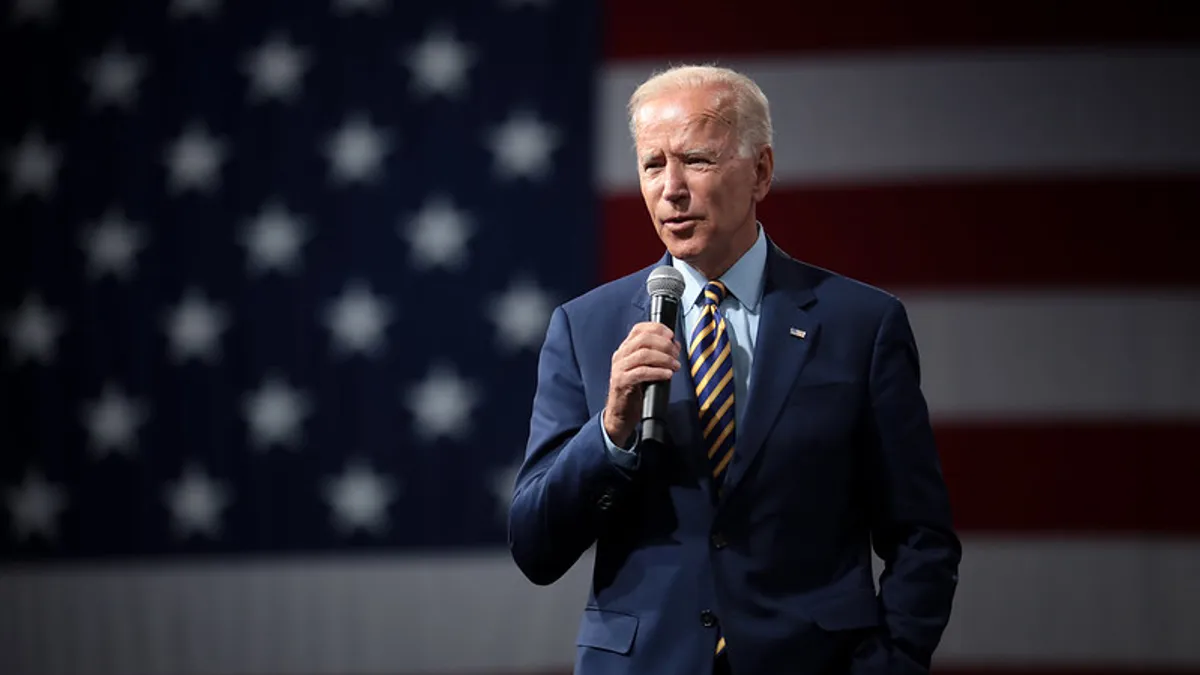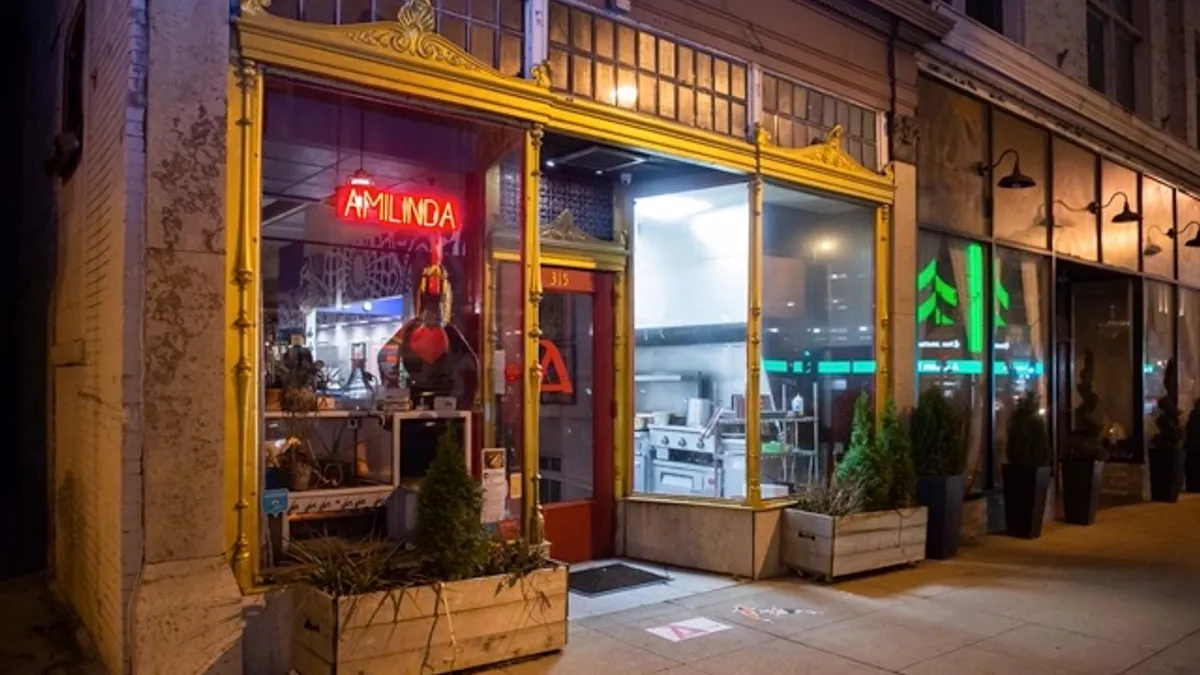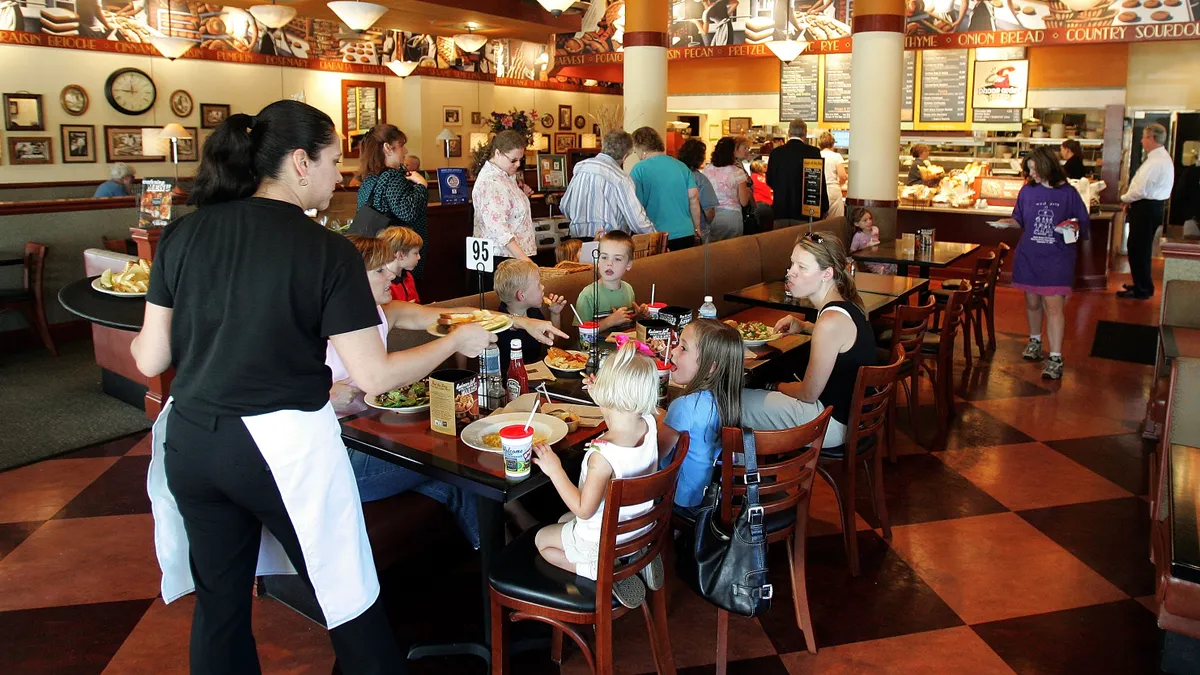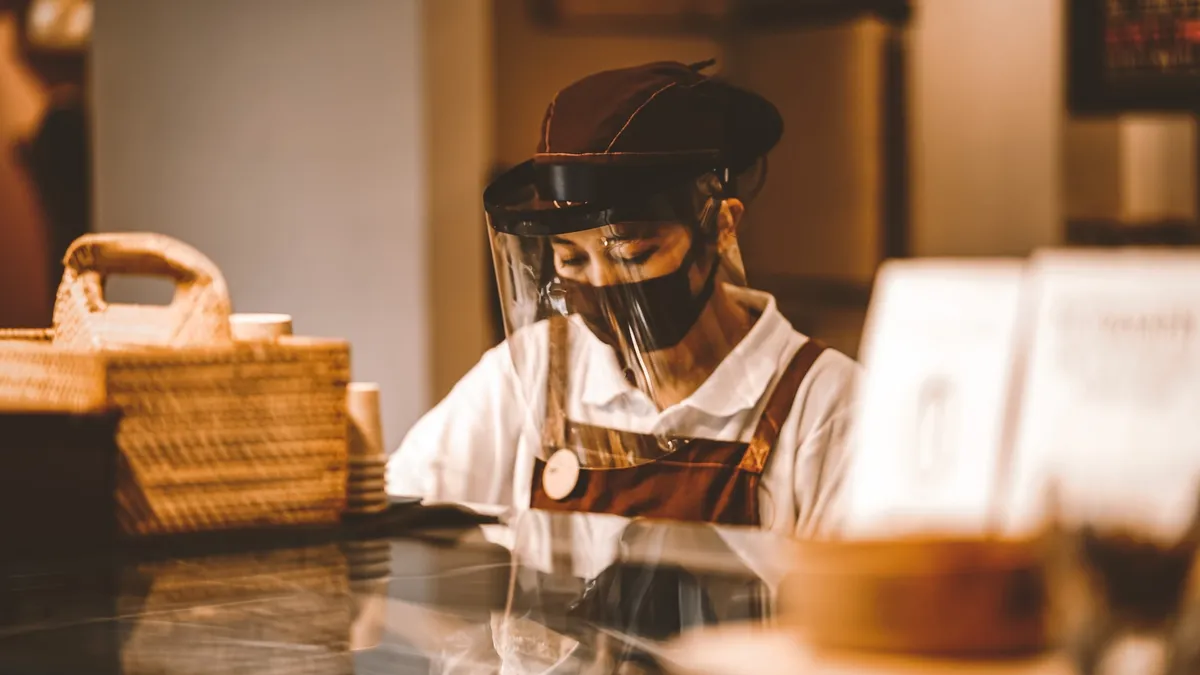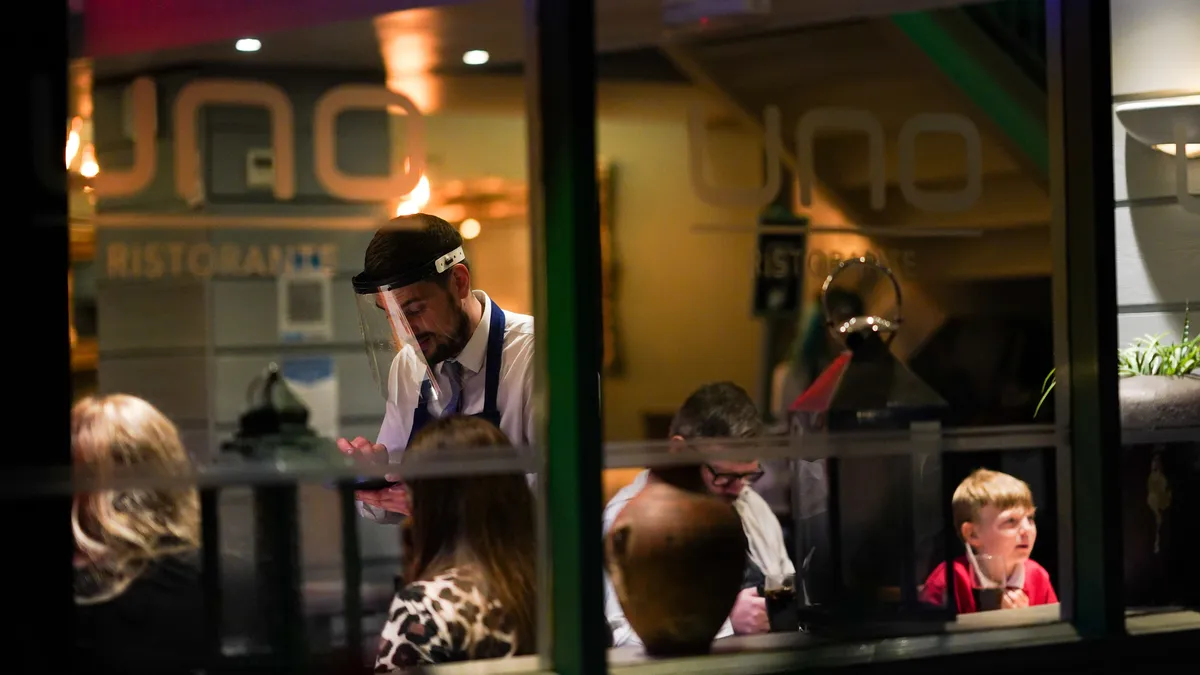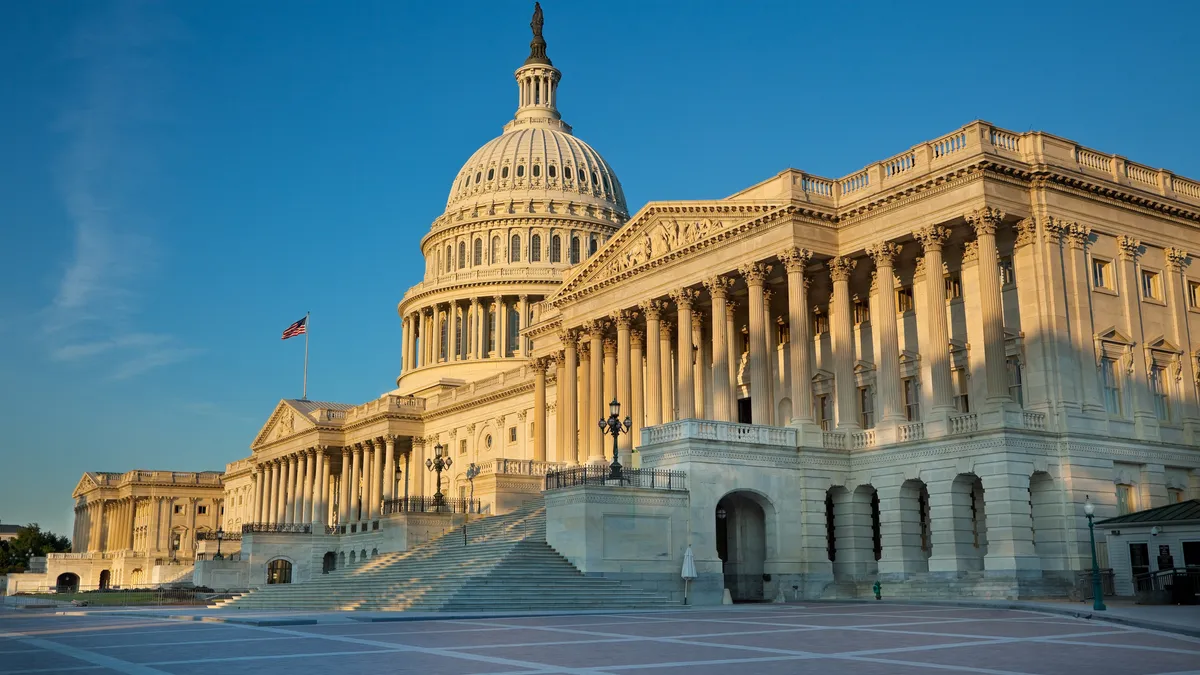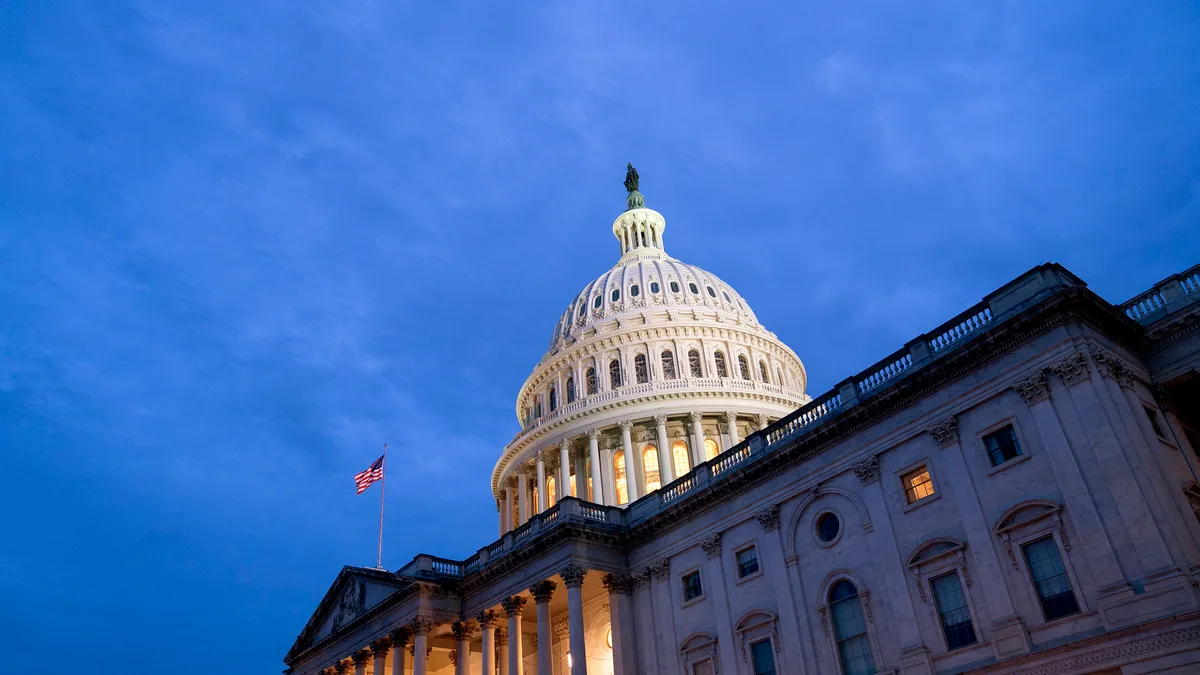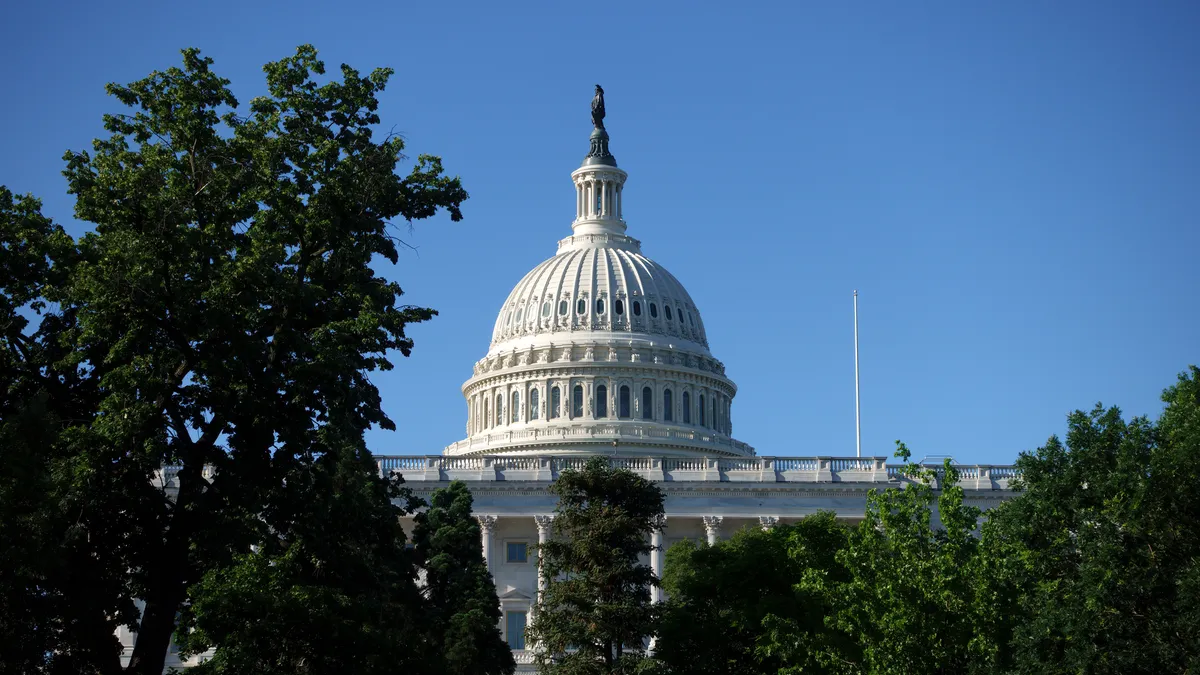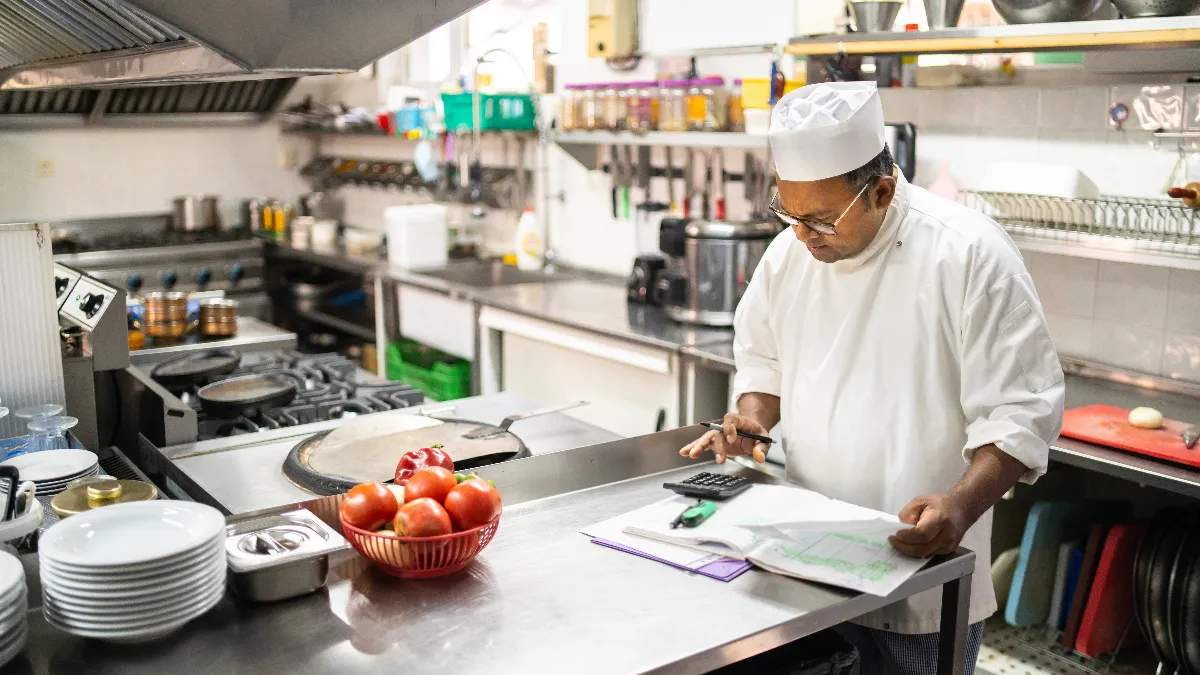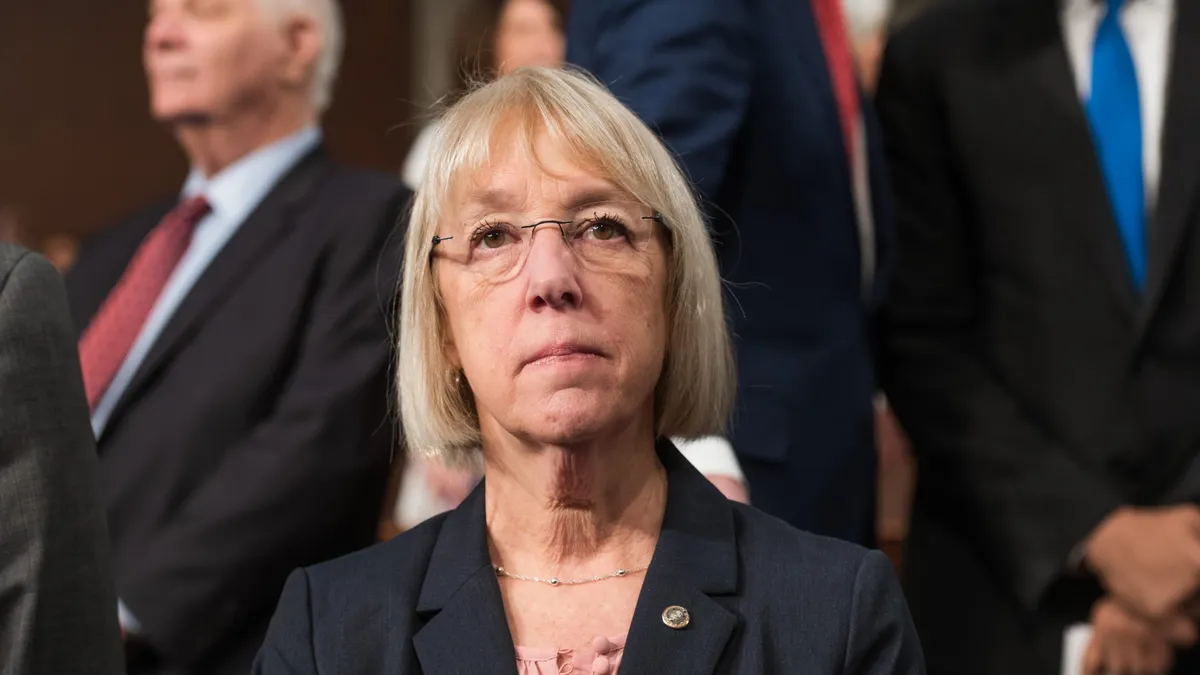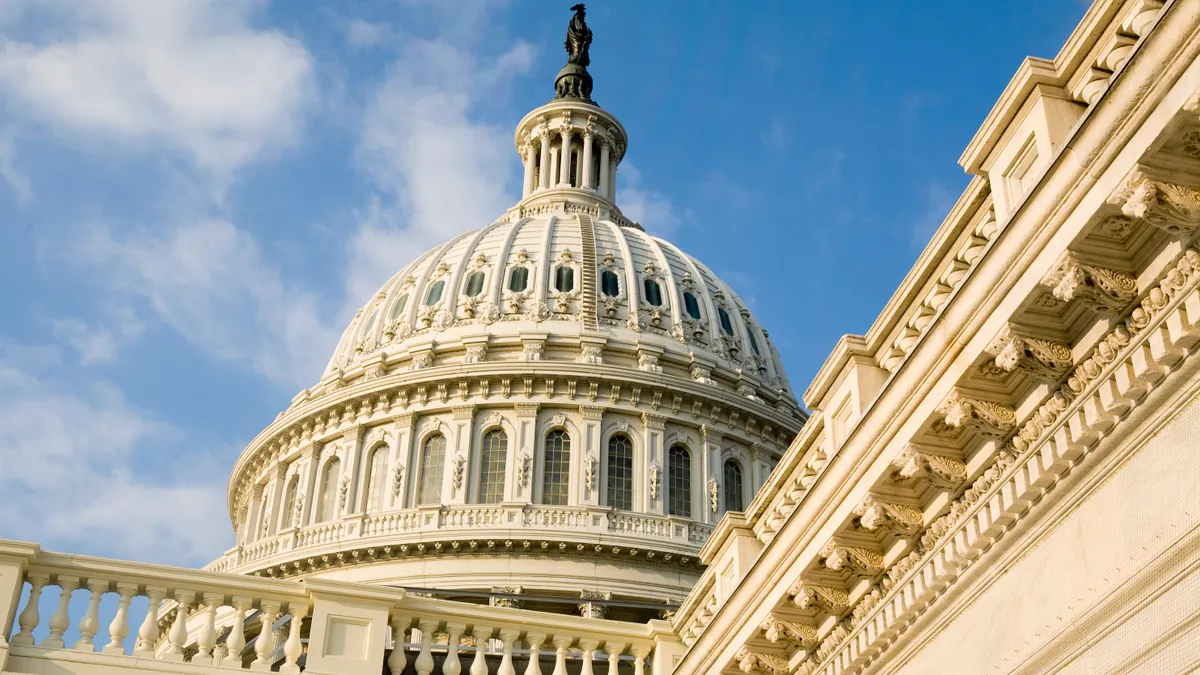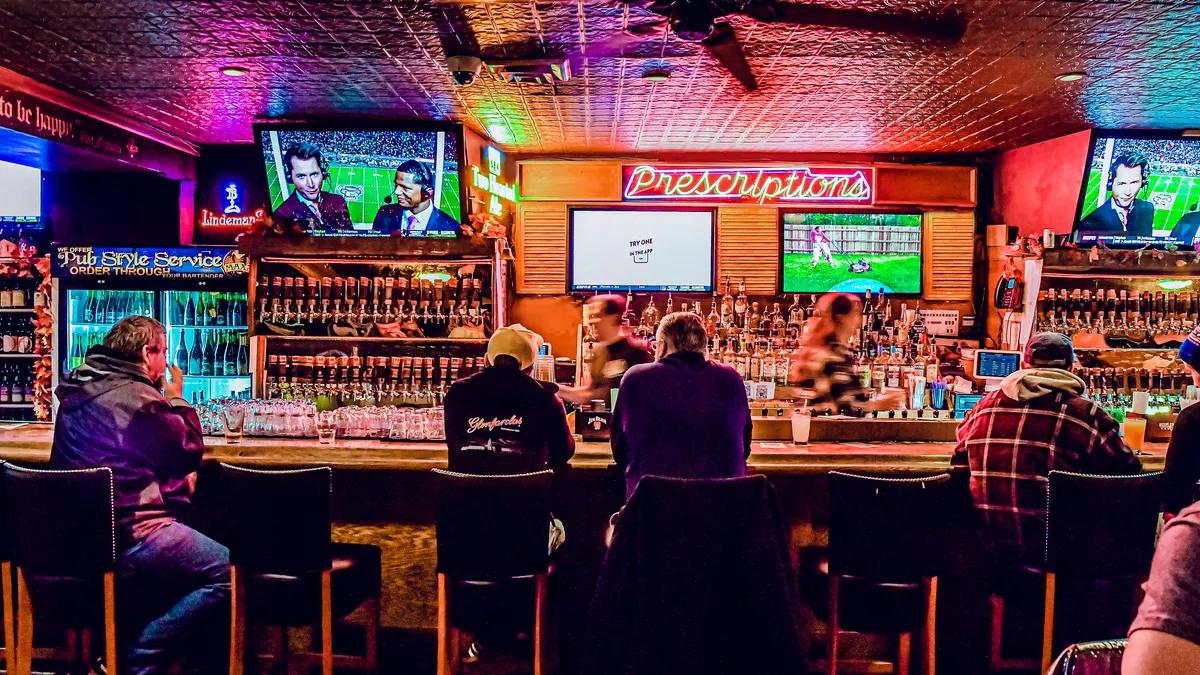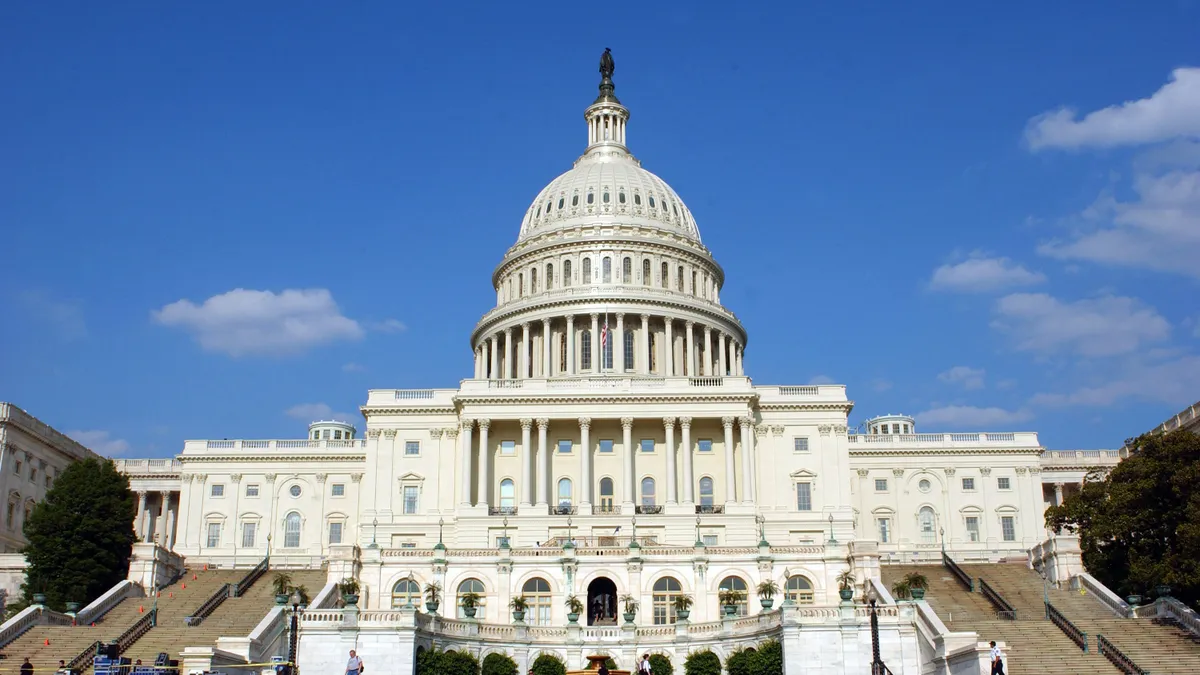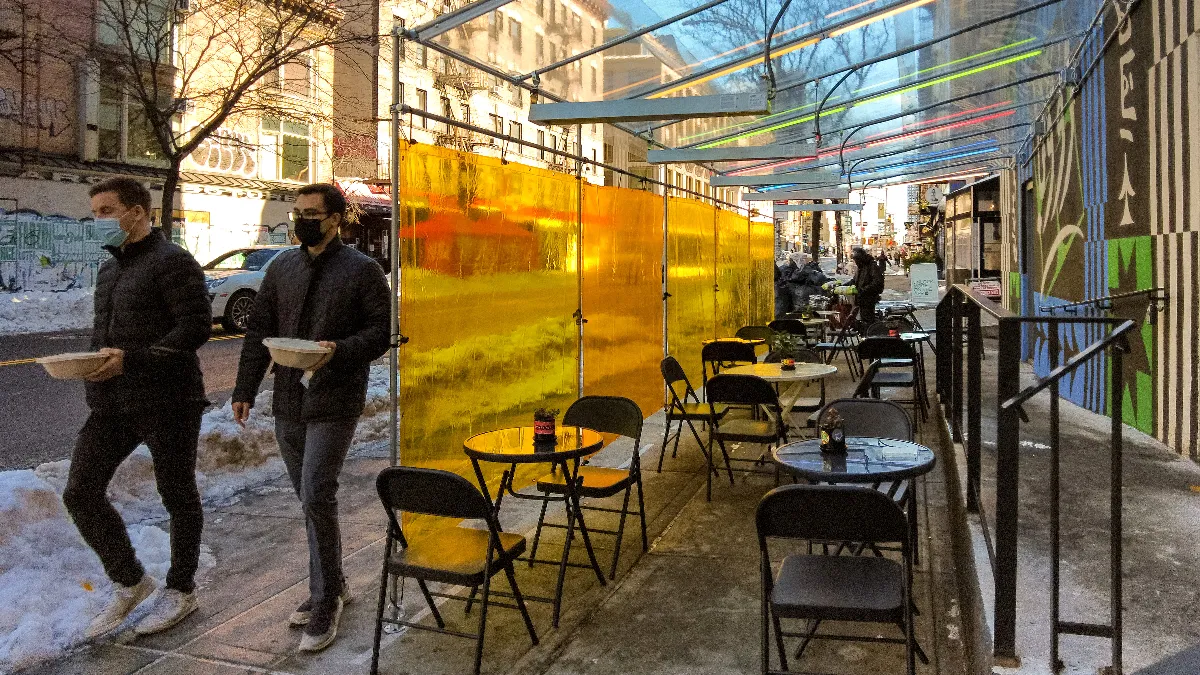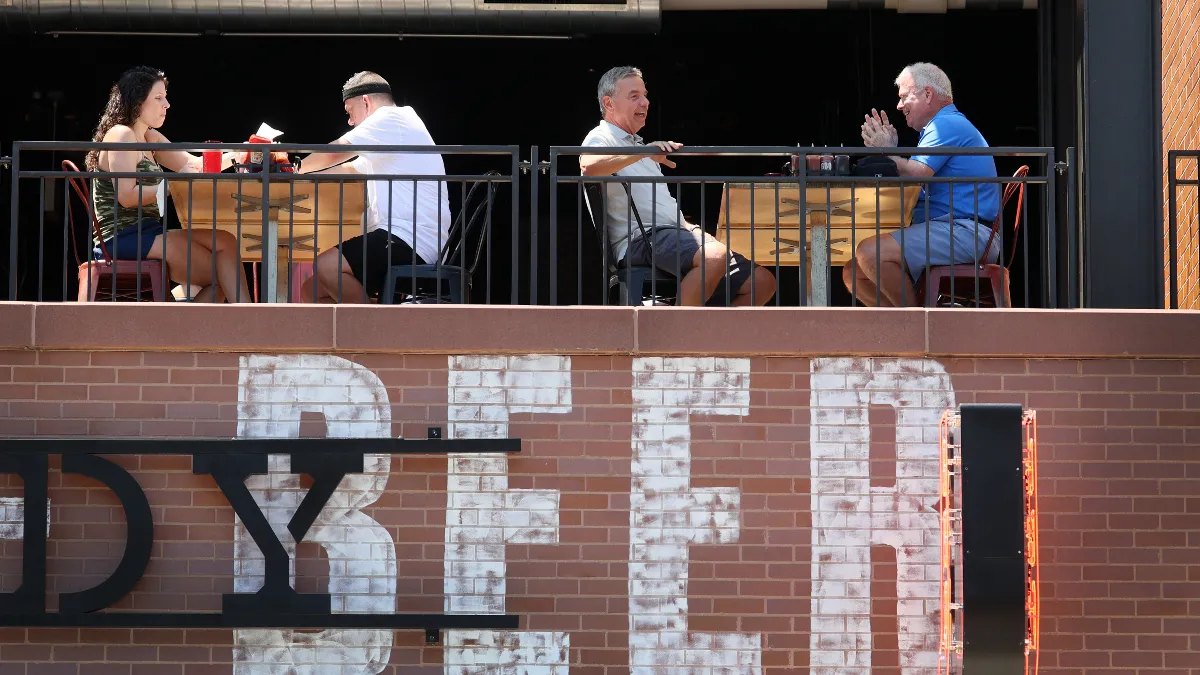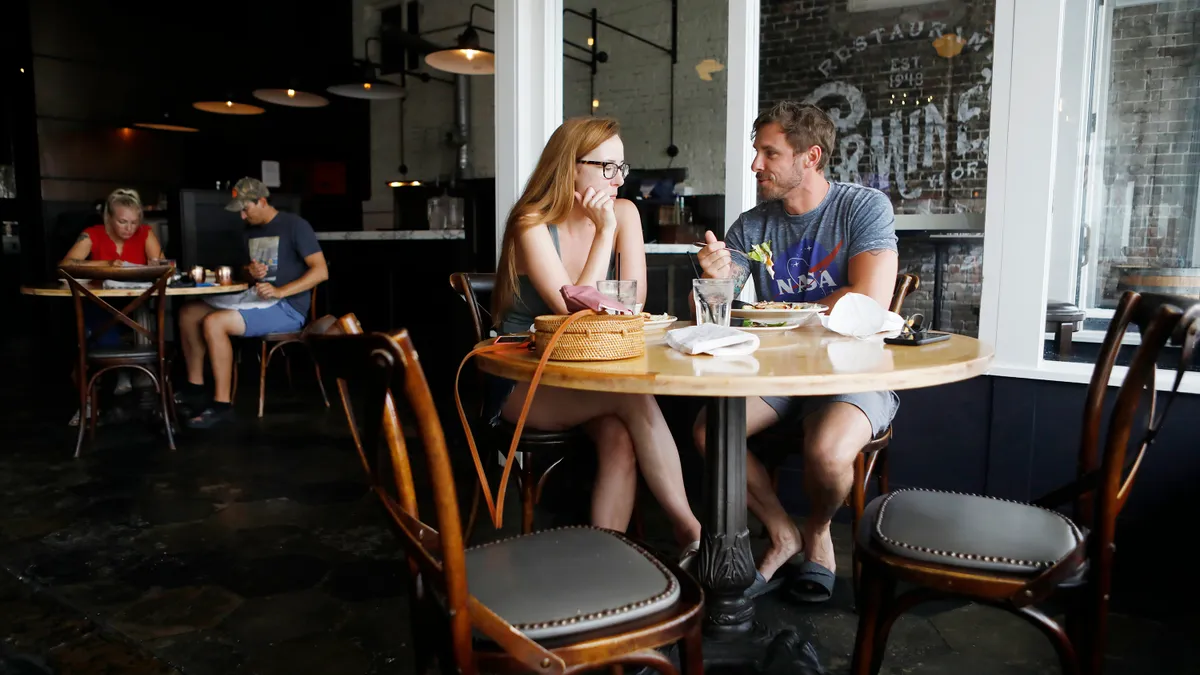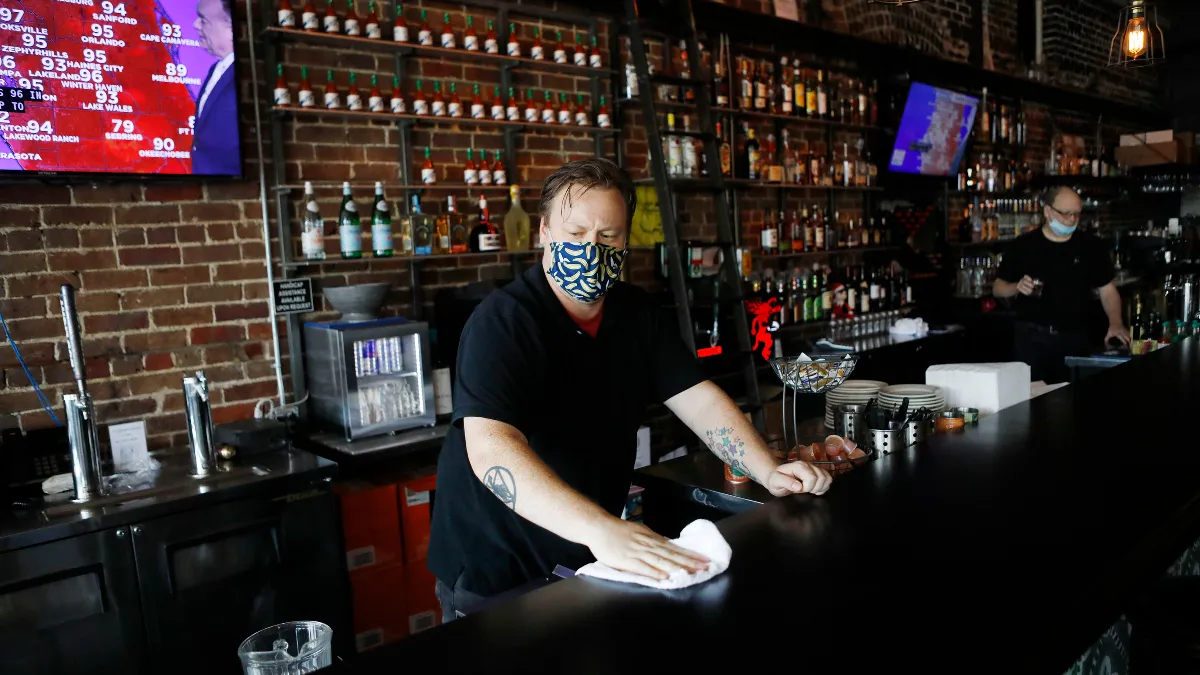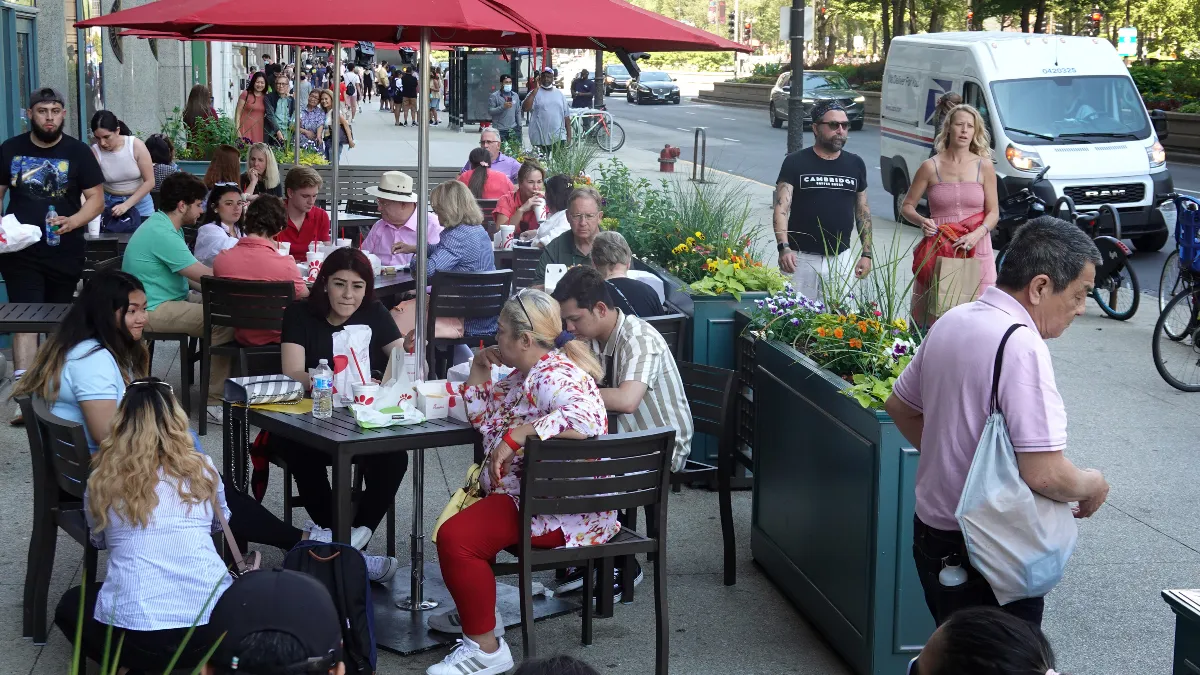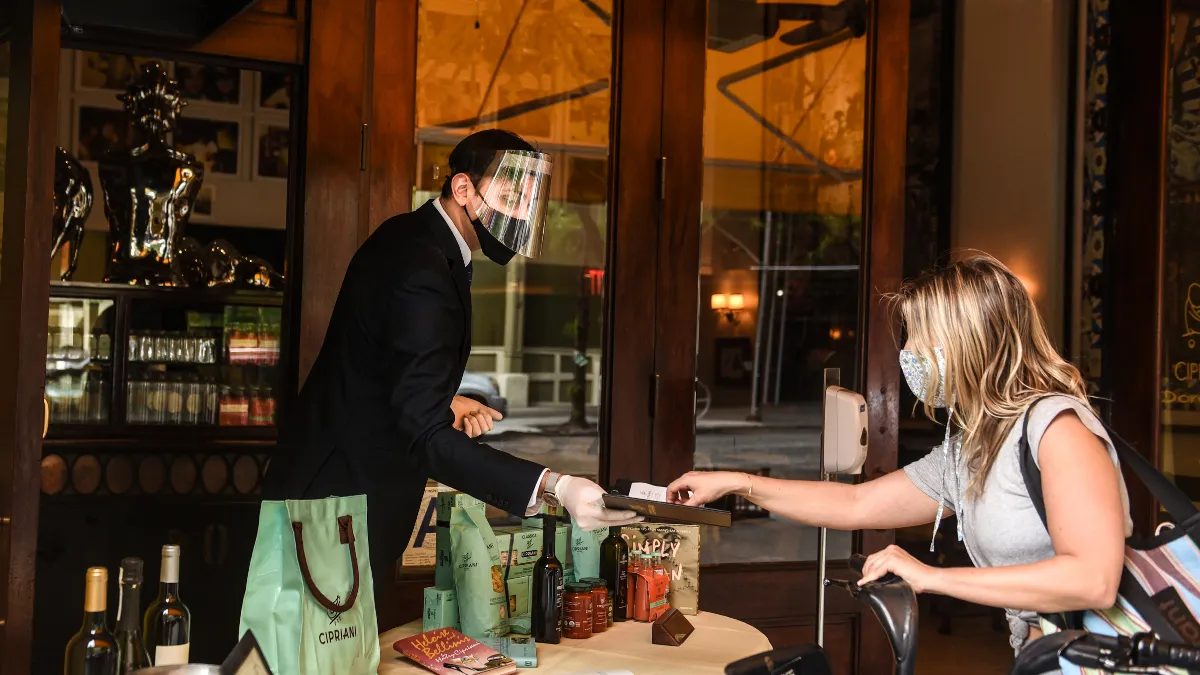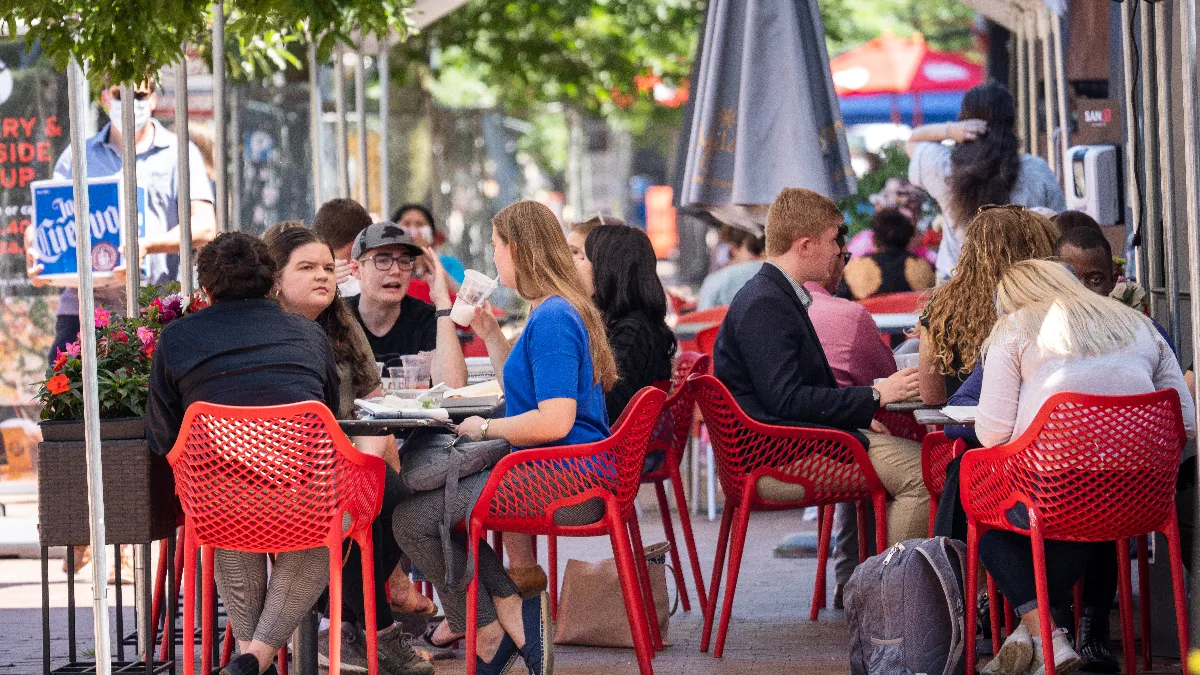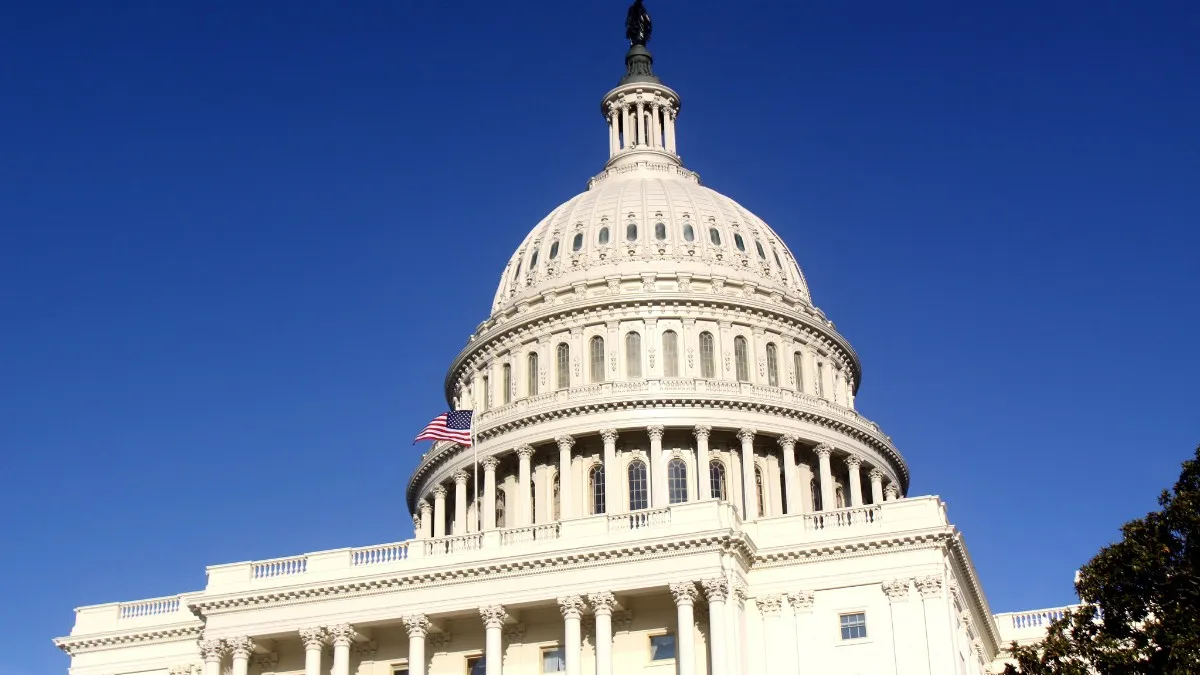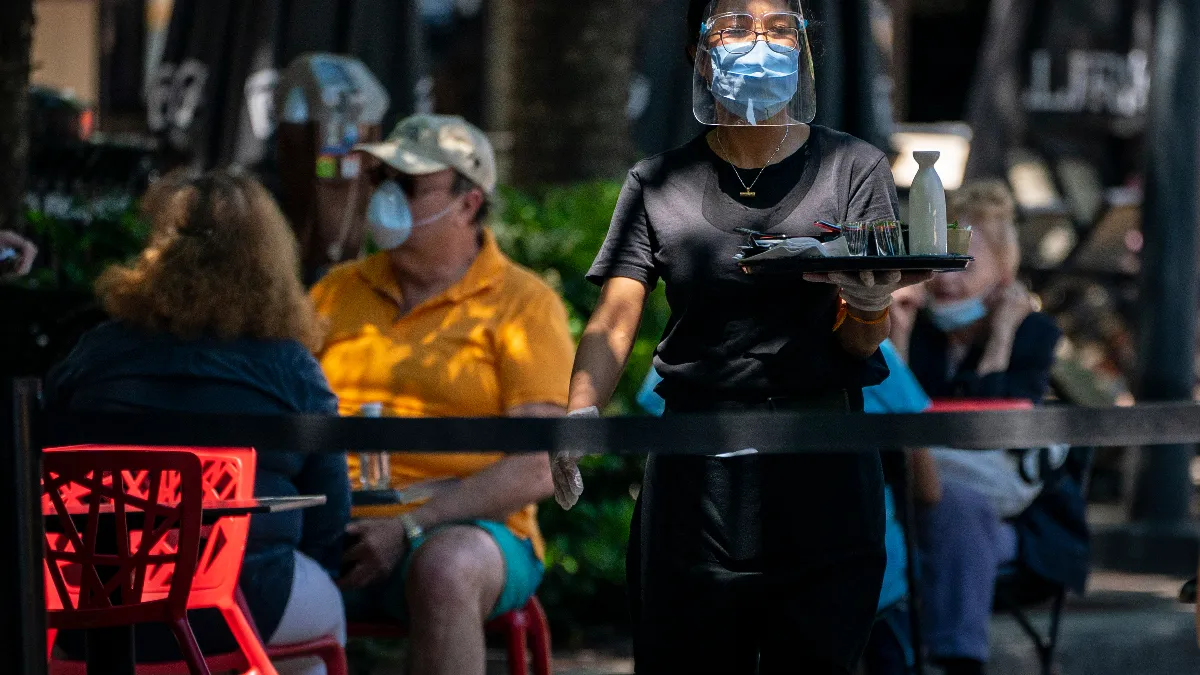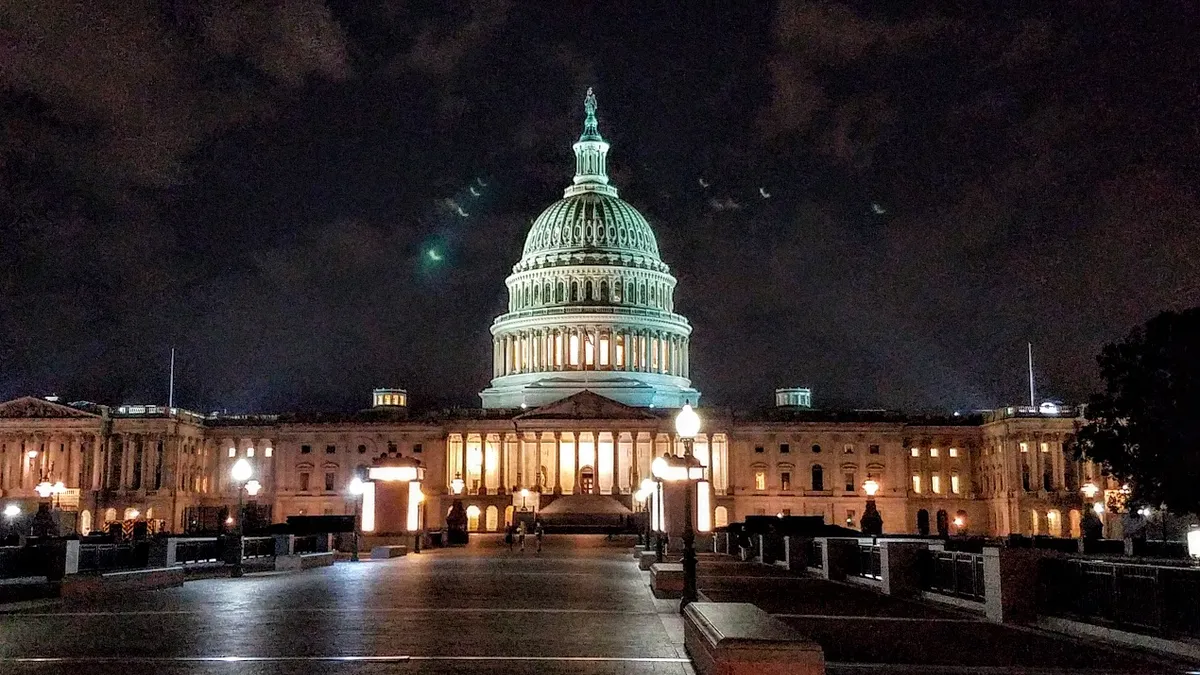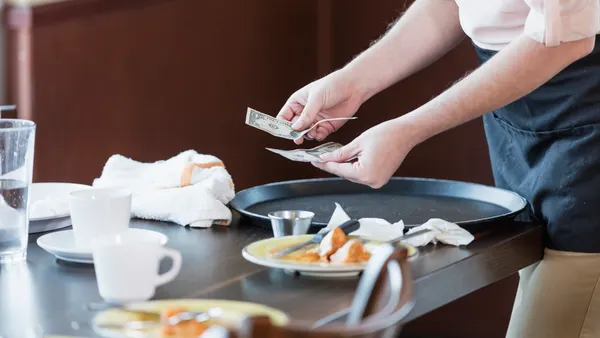Dive Brief:
- President Joe Biden said in an address at the White House Wednesday that 186,200 restaurants, bars and other eligible businesses had applied for the Restaurant Revitalization Fund (RRF) in the first two days of the program. The $28.6 billion fund opened on Monday, and applications came from all 50 states and U.S. territories, according to the White House.
- White House Press Secretary Jen Psaki told the media Wednesday that businesses who were part of the program's pilot period will begin receiving funds on Friday, and that operators that applied this week will receive their funds in 14 days, on average. "It will be a very rapid turnaround," Psaki said.
- Roughly 61,700 applications came from businesses with annual revenues of $500,000 or less, "representing some of the smallest restaurants and bars in America," according to the White House. More than 50% of total applicants are owned or operated by women, veterans or economically or socially disadvantaged individuals.
Dive Insight:
The long-awaited opening of the Restaurant Revitalization Fund is a much-needed shot in the arm for the industry, which has struggled to keep its head above water even with multiple rounds of small business aid from the Paycheck Protection Program (PPP). According to the White House, the Small Business Administration (SBA) approved more than 337,000 loans totaling more than $31 billion to small restaurants and bars via PPP.
But the RRF's targeted relief, and the Biden Administration's vocal support for the survival of America's restaurants, could mark the beginning of an upswing for the sector's recovery. According to the White House, the restaurant industry has added 450,000 jobs since January and the share of restaurant and bar owners looking to hire in the next six months has almost doubled from 30% in January to more than 57% in mid-April. The share of operators predicting a return to "normal" operations in the next six months has risen from 17% to 26%, the White House stated.
"Whether it's our economy or our sense of community, we're relying on restaurants to play a big role in our recovery," Biden said. "If we want our economy to recover the way that deals everyone in, then our restaurants need a seat at the table, no pun intended."
But industry anxiety over the program's limited funds is high. Last month, SBA Associate Administrator Patrick Kelly told the Independent Restaurant Coalition there aren't enough funds to support all eligible operators, and encouraged restaurants to apply for RRF on its first day.
Biden's statements may reflect a shortage in support. In a tweet Wednesday, the President said RRF will "be able to help about 100,000 restaurants," even though more than 180,000 applied for aid in just two days. Biden said that the program will prioritize establishments that weren't included in previous relief programs, including family-owned bars, restaurants and food tricks, so that these operators don't have to "compete above their weight class."
When asked if Congress has more money for RRF, Psaki on Wednesday acknowledged the strong demand for the program and said that when Congress returns, the White House can "discuss the best ways to further support small businesses, including restaurants hurt by the crisis."
Kelley suggested last month that if the restaurant industry demonstrates strong demand in the early days of RRF — which certainly seems to be the case — that Congress could be persuaded to enact a second funding round for the program.
The next 18 days of the program will prioritize applications submitted by businesses owned or operated by women, veterans and socially and economically disadvantaged individuals. After this period, eligible applications will be funded on a first-come, first-served basis, according to the White House. Fund recipients can put the money toward eligible operating expenses, including payroll and rent, until March 11, 2023.



